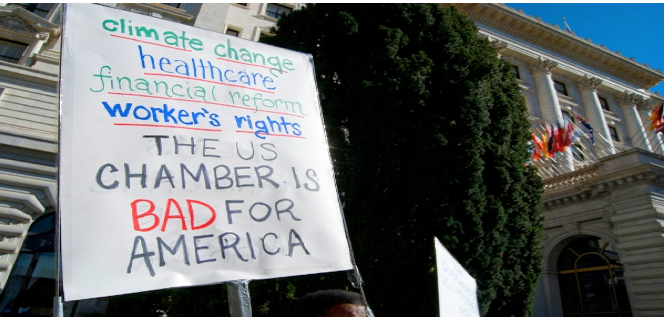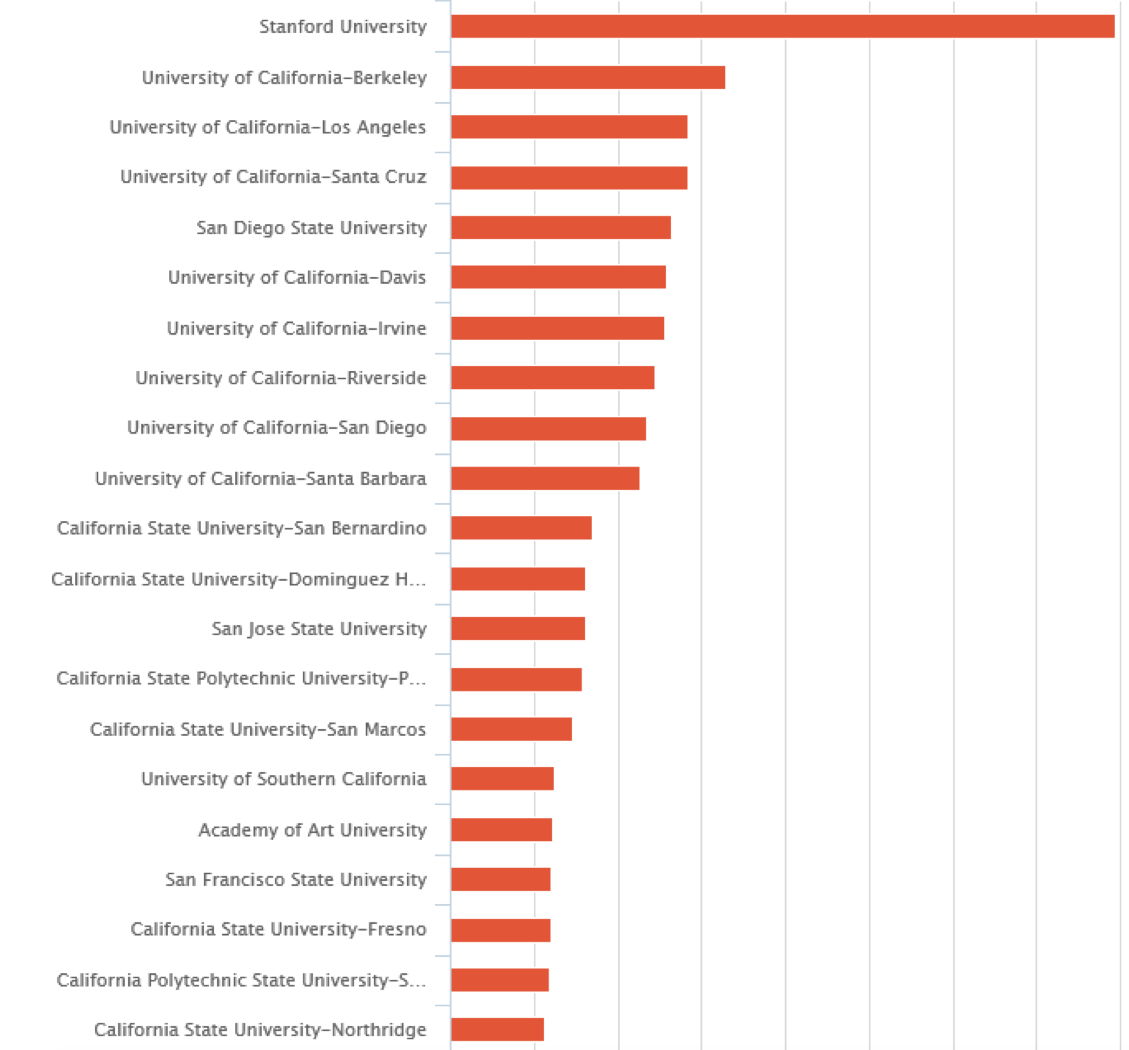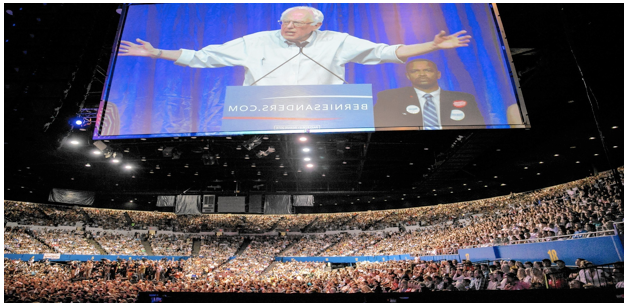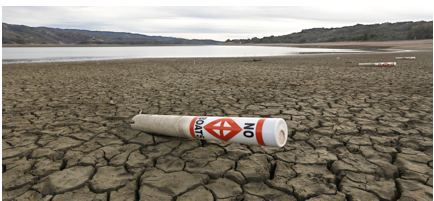NEW GEOGRAPHY--With Bernie Sanders now dispatched by Hillary Clinton and the Democratic Party machine, Donald Trump has emerged as the unlikely populist standard-bearer. Not since the patrician Julius Caesar rallied the Roman plebeians, or the aristocratic Franklin Roosevelt spoke for the “forgotten man,” has someone so detached from everyday struggles won over such a large part of the working and middle classes.
Crass, superficial and materialistic to a fault, Trump, sadly, shares little of the virtues of either Caesar or Roosevelt, more resembling another creepy billionaire, the former Italian prime minister Silvio Berlusconi. Yet, like his wealthy political counterparts, Trump has crafted a message, however crude, that has demolished the Republican corporate establishment and turned conservative intellectuals into virtual irrelevancies.
The great tragedy for Trump is that the basis for a grass-roots-led Republican victory lay within his grasp. He could have been, like Ronald Reagan in 1980, the instrument of populist revolt had he shown the same wit, self-control and positive eloquence. Instead, his crudity, his barely disguised racial stereotyping and his obsession with himself has taken from the GOP, at least for this election cycle, the possibility of reaping an enormous windfall from the widespread alienation of the populace from the political and economic ruling class.
Racially tinged issues, notably immigration, propelled Trump’s rise. This reflects the sad reality that race relations in this country have been headed in the wrong direction the past several years. His opposition to illegal immigration – including his absurd, shock-jock-style advocacy of a southern border wall – resonates with a large part of the Anglo population, some African Americans and even some Latinos, a group whose mass desertion from the party may now seal its demise.
If negotiated with grace and some sensitivity, illegal immigration could have proven a winning issue this fall, as it was in the spring. The killing of Kate Steinle in San Francisco by an illegal immigrant felon, who was protected by that city’s “sanctuary” status, followed by terrorist massacres in Paris and San Bernardino, all played into this theme. Recent revelations about higher-than-reported criminal recidivism among undocumented felons aid the Trump cause.
Although most Americans don’t favor Trump’s cruel talk of mass deportations, the vast majority, around 60 percent, favor tighter border controls as an immigration priority. Most are not likely to look favorably on “sanctuary cities” and the essentially open-borders approach that now dominates progressive thinking.
But rather than assault the political correctness of open borders and sanctuary cities, Trump’s approach to immigration policy has been both shortsighted and mean-spirited. That doesn’t mean it’s irrelevant or incomprehensible, or could not resurface again. There is a future in challenging a progressive mindset that regards the majority of the country as fighting, as Salon recently put it, “white America’s sad last stand.” There also is something ironic in that much of the anti-Trump fever comes from such increasingly white bastions as Portland, Seattle and San Francisco.
In fact, the increasingly strident progressive multicultural agenda could have bolstered the GOP, if that opposition was not championed by someone who at times seems a buffoonish lout.
The recent resurgence in crime could have been another gift to The Donald and the GOP. Crime has always been a racially charged issue, and it propelled the rise of both Richard Nixon and George Wallace, who, between them, won close to 60 percent of the presidential vote in 1968. In contrast, Barack Obama’s presidency was aided by what had been a decades-long reduction in crime that undermined this classic conservative campaign issue.
Now the drop in violent crime seems over. The homicide rate is ticking up, in cities as diverse as Chicago, Dallas, Jacksonville, Fla., Las Vegas, Los Angeles and Memphis, Tenn. The impact of the “Ferguson effect” on policing and the often violent, anti-police rhetoric of some Black Lives Matter activists is putting law enforcement on the defensive, with arguably disastrous results.
Another potential gift to Trump and the GOP – the left-wing violence aimed at Trump events, often spilling over to attacks on police – will likely be squandered. Some left-wing journalists, such as a since-suspended editor at Vox, actually have urged readers to riot against the Trumpites. Rising crime and scenes of public disorder, notably at the 1968 Chicago Democratic Convention, proved critical to Nixon’s success, but Nixon, for all his faults, knew how to package his message so that moderates could embrace him. Not so with the GOP’s crass Captain Ahab.
The Democratic Party has evolved primarily into an organ of core cities, a shift that increasingly defines its politics. Although core cities are home to, at most, 20 percent of the population, they have become so overwhelmingly Democratic that they represent the party’s largest electoral base. This slant, however, could have provided Trump, himself a luxury urbanite, an opening to win over the suburbs. These unheralded areas remain the nation’s dominant geography and the likely “decider” of who wins in November.
Democrats, who once supported suburban aspirations, now often regard suburbia as a giant mistake, while consigning the countryside, except for vacation locales, as the regressive abodes of what President Obama labeled as “clingers.” Measures now being pushed by the Department of Housing and Urban Development to transfer large numbers of poor people, including felons, into middle-class communities, could prove a political time bomb for Democrats. Trump, however, a longtime beneficiary of government largesse through expropriation of homes and businesses, is ill-suited to even comprehend the issue and grasp this opportunity to win over the vast majority of Americans who don’t live in core sites.
When Trump took on the Environmental Protection Agency and the Obama energy agenda while campaigning in North Dakota recently, he touched a potentially rich vein of support. As the Democrats have locked up most of the software, design, entertainment, media and financial oligarchy, they have become increasingly opposed to all fossil fuels – including natural gas – that drive much of the industrial economy.
The assault on coal has already cost the Democrats virtually all of Appalachia, and could also begin to weaken Democrats even among union members. Nationally, this can be seen in a growing rift between greens, and their oligarchic and public sector allies, and traditional construction and industrial unions, who are furious about the party’s close coordination with environmentalist billionaire Tom Steyer’s For Our Future super PAC.
The conflicts here are based around those policies – for example, on energy and roads – that directly impact middle- and working-class voters on the periphery. Trump could have made hay by pointing out that green San Francisco elites and Hollywood stars enjoy lives of almost absurdly conspicuous consumption, while urging everyone else to cut back their carbon footprints.
The real-versus-ephemeral split could still work to Trump’s favor in areas, like Ohio and western Pennsylvania, where the energy revolution promised real economic gains. Voters in these regions, even if they don’t work in factories or oilfields, are aware of how critical these industries are for their economies. Trump’s alienation of large parts of this political base – which also includes many minorities – will limit his electoral harvest.
The idea of the loquacious and status-obsessed Trump leading the ignored “silent majority” provides something of a theater of the absurd. The country was ready for a real GOP populist to run against Hillary Clinton, who epitomizes the almost complete capture of the Republic by the oligarchs, their media messengers and the governmental apparat. Desperate to hold onto Obama’s base, she embraces policies that have failed to deliver improved incomes for the middle class and reinforced the deep pessimism felt across the country.
In the end, Trump has mastered the art of the political “deal,” but largely for the benefit of his opponents. Given the deep grass-roots disgust with the power structure, he could conceivably have won over many of the “Bernie Bro’s” this fall. But his resplendent awfulness likely will prevent him from transforming the GOP into the voice of nationalistic populism and expanding its electoral base. Ill-suited as a populist icon, Trump seems destined to leave the country even more in the hands of the oligarchy while leaving his own party, for the near future at least, lurching toward oblivion.
(Joel Kotkin is a R.C. Hobbs Presidential Fellow in Urban Futures at Chapman University and executive director of the Center for Opportunity Urbanism in Houston. His newest book is “The Human City: Urbanism for the Rest of Us.” This was first posted at newgeography.com.)
-cw

















 “I’ve received many, many environmental rewards, really. Rewards and awards,” Trump said. “I have done very well environmentally. I’m all for it.”
“I’ve received many, many environmental rewards, really. Rewards and awards,” Trump said. “I have done very well environmentally. I’m all for it.” 



















